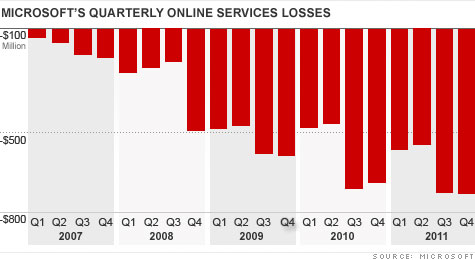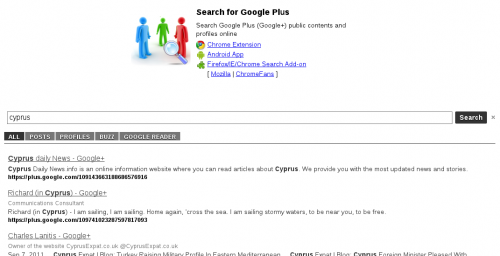I used the vector space model about a decade ago when I worked on the simple search engine for the company documents. Today the subject came up in the conversation and I was surprised as to how quickly I remembered this. I still think that this is rather elegant.
Tag: search
Microsoft tried to sell Bing to Facebook
Slashdot reports on the rumor that Microsoft tried to sell its search engine Bing to Facebook. After all the hype around how much of a leader Microsoft is in the web industry, I find this to be quite funny. (Provided that it’s true, of course.)
Microsoft is not a web company. It doesn’t think or behave like a web company. Sure, they can change, but these things don’t happen so fast. Facebook, on the other hand, is a web company. They know the difference between Bing search engine and Google search engine. More so, they are a social company, and they do know the difference between attempting to index the whole web, and receiving users’ Likes and Shares.
While I don’t use Bing myself, I think there is plenty of cool stuff in there. But problems that it has to solve as a search engine, are much easier to solve with Facebook’s social graphs – things like SPAM, results gaming, relevance, etc. So for me it’s really not a surprise that Facebook declined the offer.
Microsoft catching up with Google
Way too often do I hear from the Microsoft fans that the company is catching up with Google. Each and every time I disagreed, but in the heat of the discussion it’s not always easy to find supporting facts. Yeah, I know, I should come ready for such arguments, but I really take them when and where they find me.
Anyways, Google Android and Microsoft Mobile is only one side of a discussion. Advertising is the other. And search is yet another one. Well, I’ve heard the numbers before, but never bothered blogging them. This time I will. Slashdot links to a CNN Money article, which tells a really sad story.
Microsoft (MSFT, Fortune 500) has lost $5.5 billion on Bing since the search service launched in June 2009, but the company’s search losses actually pre-date that. In fact, the software giant has never made money in its online services division. Since Microsoft began breaking out that unit’s finances in 2007, the company has lost a total of $9 billion.
There is even a little visual aid in case you prefer your trends simplified. It doesn’t look good, and it will never will. And the secret is very simple. Microsoft is not an online company. It never was and it is too large to change. If it will ever change, it will be as different from what it is now as IBM is different from the company it used to be in the last century.

Google+ Search
Andrew Shen of Chrome Fans fame notified me of the new, very handy project – Search for Google+. I’ve tried it out and it, being Google’s own Custom Search Engine, works super well. The beauty of the whole thing is that it is available via web, Google Chrome and Firefox addons, as well as an Android app. The search can be limited to Google+ posts and profiles, Google Buzz, Google Reader, or a combined everything. Try it out – you won’t regret it, I promise.
Recommendation engine that finally makes sense – Google +1
I’ve heard plenty of rumors about an upcoming Google social network. I have no idea if they are true, and really I don’t care. I have enough social networks as it is. But what I haven’t heard about until now is Google +1 – a new recommendation engine that Google is trying out.
[youtube=http://www.youtube.com/watch?v=OAyUNI3_V2c]
At first, when I read about Google +1 and that it was yet another attempt for recommendation engine for Google search results, I didn’t think it was interesting at all. There were a number of tries in that area – some of them long gone, some still alive. I’m talking about results reordering via drag-and-drop, starring of result items, and others.
All of them shared the same problem – promoting items from within search results doesn’t work very well, because the user hasn’t yet visited the page itself. He’s eager to navigate away from the results. And on top of that, page title, description, and a thumbnail aren’t always enough to make a judgement.
On the other hand, recommendation engines are doing pretty well with social networks like Facebook, Digg, Twitter, and others. Every other page on the web has a share button that supports one or more social networks. And people use those. Even though sharing pages on Facebook and Twitter might be useful, it isn’t as useful as increasing the karma of those pages in order to rank them higher in your future search results.
That’s where Google +1 comes in. It makes perfect sense. Now you can search Google, visit the results, and +1 those of them that you liked (and, of course, those of them that support the Google +1 sharing). Not only it would be trivial to push those +1 to other social networks, but also now users have way more stimuli to share things, since that would improve their own search results.
Google +1 is yet available to everyone. Google will take some time to roll it out. But if you want to try it out now, you can enable it on experimental page.
